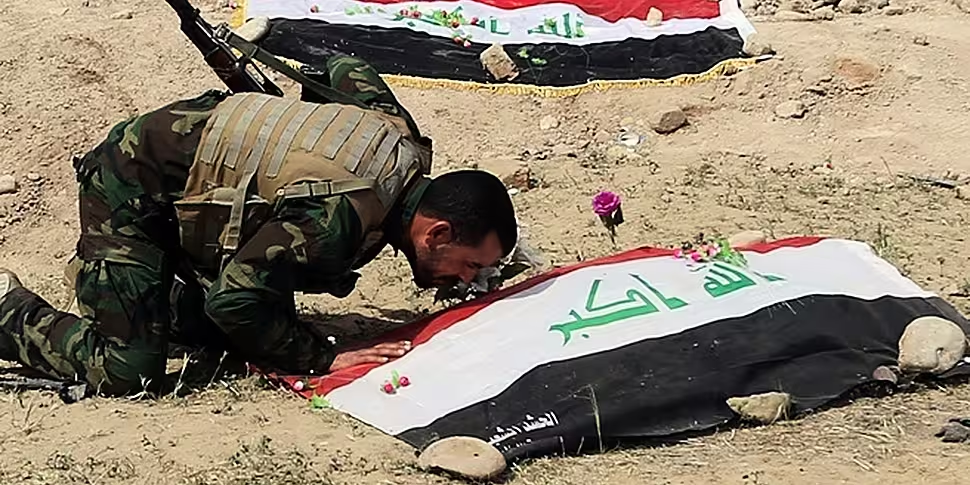A survivor of a massacre of some 1,700 troops by IS forces in Tikrit last June has been talking of his escape as forensic teams begin exhuming the graves.
Iraqi soldier Ali explained how IS lulled him and fellow troops into believing they would be well treated.
"They told us they had no problem with us and promised us we would be sent to our families, they brought us cars and even gave us water to make us feel secure," he said.
"Once they put us in large cars, they managed to control us and brought us here and tied us up, and I still have a mark from my cuffs here."
He went on: "The fourth bullet was meant to kill me, but I was not hit.
"The fifth bullet was fired, killing the one who was next to me. Playing dead, I fell to the ground. I was covered by the blood of my colleagues and I rolled down into the valley."
Up to 12 suspected mass graves are now being exhumed.
"We dug up the first mass grave site today," said an Iraqi health official working with a forensic team sent in to Tikrit, outside the former US base camp of Camp Speicher.
"Until now we found at least 20 bodies. Initial indications show indisputably that they were from the Speicher victims.
"It was a heartbreaking scene. We couldn't prevent ourselves from breaking down in tears. What savage barbarian could kill 1,700 persons in cold blood?" he asked.
The mass killing of the Shi'ite troops took place as the fighters fought their way across northern Iraq.
Their deaths came to symbolise early on the brutality of IS, as well as the group's hatred of the country's Shi'ite majority.
The jihadists at the time posted online images of hundreds of the soldiers being machine-gunned in what may turn out to be the deadliest single act of killing during a decade of sectarian violence in Iraq.
The soldiers' bodies were then buried in the presidential compound of the late dictator Saddam Hussein, who came from Tikrit.
The exhumation of their bodies comes days after Iraqi forces and Shi'te paramilitaries drove IS fighters out of the city.
Victims' families and friends have been lobbying for months for answers to what happened to their loved ones.
"The only positive thing is the victory in Tikrit," said the relative of a man who is among the missing.
"We are happy. At least the families will soon know the fate of their sons and cousins," he said.









